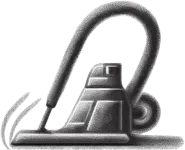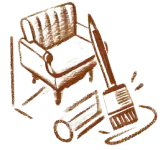
Discover the joy of a clean and inviting home with FamilyGoody’s expert cleaning tips and product recommendations.
Welcome to FamilyGoody, your ultimate destination for all things cleaning! Whether you’re looking to tackle mopping tasks, optimize your vacuuming routine, or find the best cleaning solutions for your home, we’ve got you covered. Our team of experts is dedicated to providing top-notch tips, guides, and product recommendations to keep your living spaces sparkling and tidy. With FamilyGoody, maintaining a clean and inviting home has never been easier. Join us on this journey to embrace a cleaner, healthier lifestyle for your family!
Home Cleaning Simplified: Your Go-To Cleaning Guide

Mopping
Keep your floors spotless with our comprehensive mopping category. Discover the latest mopping techniques, find the best mop for your needs, and explore eco-friendly cleaning solutions. From hardwood to tiles, we have you covered with expert tips and product recommendations to achieve squeaky-clean floors effortlessly.

Vacuuming
Explore our comprehensive vacuuming category for the latest tips, top-rated vacuum cleaner reviews, and expert advice. From finding the best vacuum for your specific needs to optimizing your cleaning routine, we have everything you need to keep your home spotless and tidy. Let FamilyGoody be your ultimate resource for a cleaner, healthier living space.

Cleaning
Explore our Cleaning category to find comprehensive guides, effective cleaning tips, and top-rated products. From mopping and vacuuming to eco-friendly solutions, we’ve got everything you need to maintain a spotless and healthy home environment. Let us help you simplify your cleaning routine!
A Spotless Home Awaits: Empowering You with Cleaning Expertise
At FamilyGoody, we are committed to empowering our readers with the knowledge and tools they need to achieve a spotless and inviting home environment. From expert cleaning tips and techniques to in-depth product reviews and comparisons, our site is your go-to resource for all things cleaning. Whether you’re looking to master the art of mopping, optimize your vacuuming routine, or explore the latest cleaning innovations, we’ve got you covered. Let us be your guide on the journey to a cleaner, healthier, and happier home.
Guides And Resources
Don’t know where to start. Read our latest articles…..
- How to Remove Carpet Glue from Laminate Flooring: Expert Tips and Guide
- Say Goodbye to Stains: Effective Techniques for Cleaning Steel Plate Tables
- Revitalize Your Tile Floors with Safe and Effective Natural Cleaning Solutions
- Say Farewell to Black Urine Stains on Hardwood Floors: Expert Guide
- Efficient Mop Head Cleaning: Expert Tips for Longevity
- Cleaning Safely in Early Pregnancy: Expert Tips and Precautions
- Powerful Vacuums for Rubber Gym Floors – Clean & Protect Effortlessly
- Gym Floor Friendly Vacuums: The Best Features for Damage-Free Cleaning
- Safely Clean Rubber Gym Floors: Vacuum Compatibility Explained
- Say goodbye to gym floor static issues with safe vacuums: Tips, recommendations, and anti-static solutions!
Searching For Cleaning Information?
Chances are you’ll find it here…
